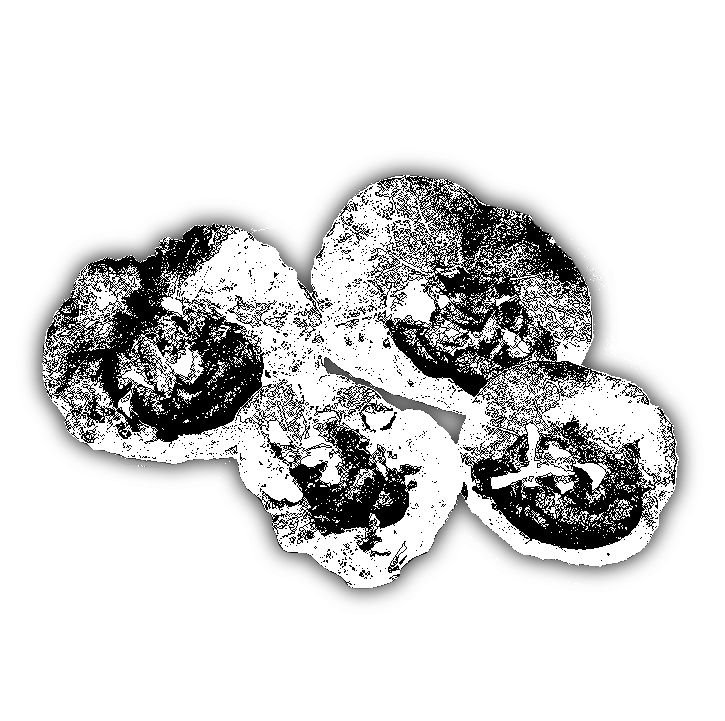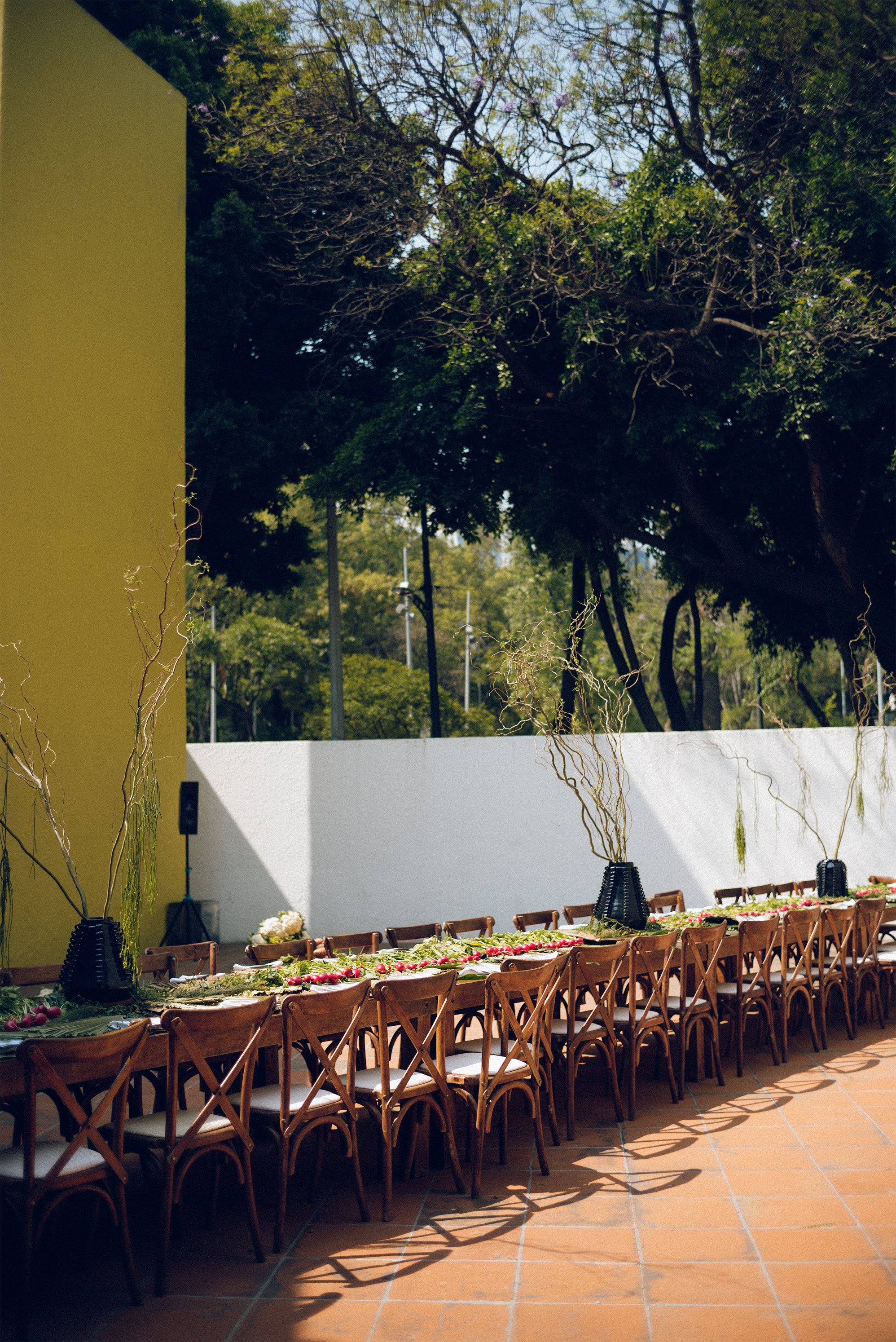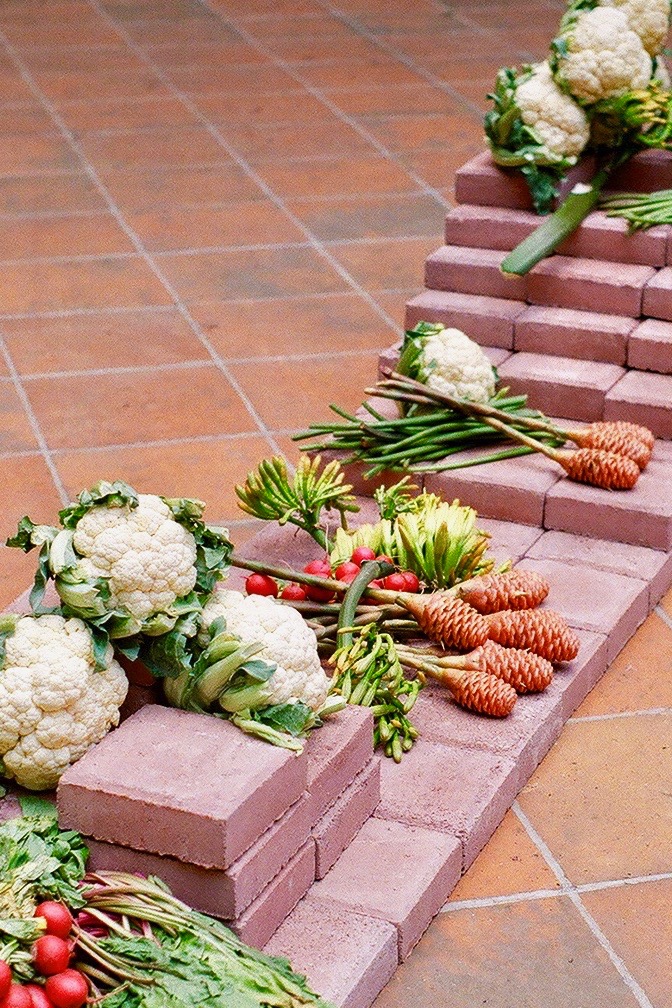

Material Art Fair
Museo Experimental El Eco
Mexico City, Mexico
April 30th, 2022.
Museo Experimental El Eco
Mexico City, Mexico
April 30th, 2022.
Aural Oral is a series of site-specific studies and sensorial junctures in agricultural research, offering a sensorial reflection on processes of cultivation and consumption. The meal pairs an auditory archive of its ingredients with its ingestion, implementing various microphones to transmit a series of recordings of culinary and cultivation actions coupled with environmental sounds from the site of production. Each accompanying track sketches a sonic cartography of the dish, amplifying the micro-actions of both the farm and the kitchen, proposing resonant reflections of its cultivation and consumption to extend beyond the domain of the gustatory. Aural Oral draws reference to acoustemological research, as coined by Stephen Feld, that valorizes methodologies of “knowing-with and knowing-through the audible.”
[1]
This edition of Aural Oral took place at Museo El Eco as part of Material Art Fair, exploring the foodscapes of the Mexico City vicinity, generating a mapping of the food systems that supply the sprawling metropolis. The first track proposes a symphonic introduction to the world of mezcal fermentation, illustrating the slow and effervescent transformation of the fibers and liquid romanced by yeast. The second track surveyed the soundscapes of Xochimilco during the construction of a chapin, an ancestral soil bed technology, at Chinampa Tlazolteotl. Chinampas, descending from the Nahuatl word chinamitl denoting “hedge close to the reed” [2], are an ancient sub-irrigation agricultural system, using rectangular areas of fertile land fabricated upon shallow lake beds. This delicate lacustrine ecosystem consists of alluvial soils, dotted with clay and basalt, and can produce up to seven harvests per year. This action transpired from an invitation to participate in Cocina Colaboratorio's Archivo Biocultural Vivo, navigating the soundscapes during the construction of the chapin; from the gathering of natural fertilizer to the collection of mud solely accessible via canoes. This dish was paired with fresh produce from the Xochimilco-based agroecology initiative, Colectivo Ahuejote. The third track presents an amalgam of sounds recorded while cooking with fire; the crackles of dry heat undulate into a rhythmic score that presents the recipe as that of a musical composition. The fourth track explored the juxtaposition of buzzings inherent to Huerto Tlatelolco, an urban garden dwelling on Paseo de la Reforma, contrasting the whirring of cars on the highway to that of the melodic bumbling of bees, highlighting various forms and velocities of movement at the garden. A sonic survey of the site collocates two audible rhythms, that of the natural cadence of the garden next to the throbbing pulse of the city. The stark contrast of two temporalities, that of the urban and the transposed-rural, posits a contemplation of momentum within the metropolitan context.
Listen to Aural Oral IV on NTS Radio
In collaboration with:
Cocina Colaboratorio:
Cocina Colaboratorio is a transdisciplinary platform that gathers creatives, farmer communities, scientists and chefs around the kitchen table to exchange knowledge, design and take action towards sustainable food futures. A test ground for ideas that conciliate land restoration, food production and better livelihood in rural and natural areas. This platform regards the kitchen as a co-creative space where people are connected through growing, cooking, tasting, sharing and experimenting. Aspirations and actions are shared and undertaken around the kitchen, mixing world views, knowledge, practices and produce through different activities and programs catered to specific sites and cultures. Since 2018 the project establishes long and short term arts+research+practice collaborations within three sites in Mexico: Xochimilco in Mexico City, Santo Domingo Tomaltepec in Oaxaca, and Marqués de Comillas in Chiapas.
Colectivo Ahuejote
Colectivo Ahuejote is an initiative that works for the reactivation of chinampera agriculture with the community of Xochimilco. It is a non-profit organization that develops and implements transdisciplinary innovation, research and consulting projects in different fields of agriculture, food and community development. Its purpose is to create community spaces for the construction of skills and development of capacities, both individual and collective, that foster new understandings and technical actions that revalue socio-ecological relationships and produce well-being.
Yola Mezcal
Yola Mezcal is female owned, female bottled mezcal with origins in San Juan del Rio, Oaxaca. Founded by Yola Jimenez, Lykke Li, and Gina Correll Aglietti on the principles of respecting traditional mezcal production, Yola Mezcal cultivates modernized economic and social autonomy for Oaxacan women. In 2014, they set out to share Yola's grandfather's recipe, unchanged since 1971, with a mission to provide economic independence for women in Oaxaca. The brand is dedicated to sustainable planting and growing techniques, and environmentally responsible production practices, including low wood distilling, solar power, and rainwater catchment systems, as well as supporting local reforestation funds.
Huerto Tlatelolco:
Huerto Tlatelolco is an example of regeneration and transformation of an underutilized area into a model of urban sustainability, a meeting space, citizen participation, and collaboration, which functions as an educational and production center for the local and extended community of Mexico City.
Special thanks to Matieral Art Fair, Museum El Eco, Margules Speakers, Cocina Colaboratorio, Chinampa Tlazolteotl, Huerto Tlatelolco, Yola Mezcal, Colectivo Ahuejote, Gaby Vargas, Jose Luis Flores, Mariana Martinez Balvanera, Eli Guerrero, Gaby Morales Valdelamar, Miriam Torres, and Perla Valtierra.
Phots by Grace Denis and Mauricio Guerrero
[1] Feld, Stephen and Rice, Tom. Questioning Acoustemology. (2020) Routledge Press.
[2] Ebel, Roland. Chinampas: An Urban Farming Model of the Aztecs and a Potential Solution for Modern Megalopolis (2020).
This edition of Aural Oral took place at Museo El Eco as part of Material Art Fair, exploring the foodscapes of the Mexico City vicinity, generating a mapping of the food systems that supply the sprawling metropolis. The first track proposes a symphonic introduction to the world of mezcal fermentation, illustrating the slow and effervescent transformation of the fibers and liquid romanced by yeast. The second track surveyed the soundscapes of Xochimilco during the construction of a chapin, an ancestral soil bed technology, at Chinampa Tlazolteotl. Chinampas, descending from the Nahuatl word chinamitl denoting “hedge close to the reed” [2], are an ancient sub-irrigation agricultural system, using rectangular areas of fertile land fabricated upon shallow lake beds. This delicate lacustrine ecosystem consists of alluvial soils, dotted with clay and basalt, and can produce up to seven harvests per year. This action transpired from an invitation to participate in Cocina Colaboratorio's Archivo Biocultural Vivo, navigating the soundscapes during the construction of the chapin; from the gathering of natural fertilizer to the collection of mud solely accessible via canoes. This dish was paired with fresh produce from the Xochimilco-based agroecology initiative, Colectivo Ahuejote. The third track presents an amalgam of sounds recorded while cooking with fire; the crackles of dry heat undulate into a rhythmic score that presents the recipe as that of a musical composition. The fourth track explored the juxtaposition of buzzings inherent to Huerto Tlatelolco, an urban garden dwelling on Paseo de la Reforma, contrasting the whirring of cars on the highway to that of the melodic bumbling of bees, highlighting various forms and velocities of movement at the garden. A sonic survey of the site collocates two audible rhythms, that of the natural cadence of the garden next to the throbbing pulse of the city. The stark contrast of two temporalities, that of the urban and the transposed-rural, posits a contemplation of momentum within the metropolitan context.
Listen to Aural Oral IV on NTS Radio
In collaboration with:
Cocina Colaboratorio:
Cocina Colaboratorio is a transdisciplinary platform that gathers creatives, farmer communities, scientists and chefs around the kitchen table to exchange knowledge, design and take action towards sustainable food futures. A test ground for ideas that conciliate land restoration, food production and better livelihood in rural and natural areas. This platform regards the kitchen as a co-creative space where people are connected through growing, cooking, tasting, sharing and experimenting. Aspirations and actions are shared and undertaken around the kitchen, mixing world views, knowledge, practices and produce through different activities and programs catered to specific sites and cultures. Since 2018 the project establishes long and short term arts+research+practice collaborations within three sites in Mexico: Xochimilco in Mexico City, Santo Domingo Tomaltepec in Oaxaca, and Marqués de Comillas in Chiapas.
Colectivo Ahuejote
Colectivo Ahuejote is an initiative that works for the reactivation of chinampera agriculture with the community of Xochimilco. It is a non-profit organization that develops and implements transdisciplinary innovation, research and consulting projects in different fields of agriculture, food and community development. Its purpose is to create community spaces for the construction of skills and development of capacities, both individual and collective, that foster new understandings and technical actions that revalue socio-ecological relationships and produce well-being.
Yola Mezcal
Yola Mezcal is female owned, female bottled mezcal with origins in San Juan del Rio, Oaxaca. Founded by Yola Jimenez, Lykke Li, and Gina Correll Aglietti on the principles of respecting traditional mezcal production, Yola Mezcal cultivates modernized economic and social autonomy for Oaxacan women. In 2014, they set out to share Yola's grandfather's recipe, unchanged since 1971, with a mission to provide economic independence for women in Oaxaca. The brand is dedicated to sustainable planting and growing techniques, and environmentally responsible production practices, including low wood distilling, solar power, and rainwater catchment systems, as well as supporting local reforestation funds.
Huerto Tlatelolco:
Huerto Tlatelolco is an example of regeneration and transformation of an underutilized area into a model of urban sustainability, a meeting space, citizen participation, and collaboration, which functions as an educational and production center for the local and extended community of Mexico City.
Special thanks to Matieral Art Fair, Museum El Eco, Margules Speakers, Cocina Colaboratorio, Chinampa Tlazolteotl, Huerto Tlatelolco, Yola Mezcal, Colectivo Ahuejote, Gaby Vargas, Jose Luis Flores, Mariana Martinez Balvanera, Eli Guerrero, Gaby Morales Valdelamar, Miriam Torres, and Perla Valtierra.
Phots by Grace Denis and Mauricio Guerrero
[1] Feld, Stephen and Rice, Tom. Questioning Acoustemology. (2020) Routledge Press.
[2] Ebel, Roland. Chinampas: An Urban Farming Model of the Aztecs and a Potential Solution for Modern Megalopolis (2020).
THE FOURTH TRACK EXPLORED THE JUXTAPOSITION OF BUZZINGS INHERENT TO HUERTO TLATELOLCO, AN URBAN GARDEN DWELLING ON PASEO DE LA REFORMA, CONTRASTING THE WHIRRING OF CARS ON THE HIGHWAY TO THAT OF THE MELODIC BUMBLING OF BEES, HIGHLIGHTING VARIOUS FORMS AND VELOCITIES OF MOVEMENT AT THE GARDEN. A SONIC SURVEY OF THE SITE COLLOCATES TWO AUDIBLE RHYTHMS, THAT OF THE NATURAL CADENCE OF THE GARDEN NEXT TO THE THROBBING PULSE OF THE CITY. THE STARK CONTRAST OF TWO TEMPORALITIES, THAT OF THE URBAN AND THE TRANSPOSED-RURAL, POSITS A CONTEMPLATION OF MOMENTUM WITHIN THE METROPOLITAN CONTEXT.






